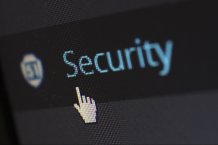
University of Exeter academics are world-renowned experts in cyber law.
University of Exeter joins President Macron’s campaign to fight cyber-attacks
The University of Exeter has joined governments around the world and technology giants in backing President Macron of France’s campaign to fight cyber-attacks.
The University is one of the original signatories of the ‘Paris Call for Trust and Security in Cyberspace’, a pledge to work collaboratively to support an open, secure and peaceful cyberspace launched at the UNESCO Internet Governance Forum.
University of Exeter academics are world-renowned experts in cyber law. Professor Michael Schmitt directed the ‘Tallinn Manual’ project, which over a seven-year period produced the key resource governments use for guidance on lawful cyber behaviour. Dr Kubo Mačák is leading a project to develop a toolkit for policymakers and politicians on how to use international cyber law, while Dr Ana Beduschi is active in exploring the use of ‘big data’ to address refugee crises.
Professor Debra Myhill, Pro-Vice-Chancellor and Executive Dean of the College of Social Sciences and International Studies said: “We are proud that the University of Exeter is among the original signatories of this multi-stakeholder commitment to enhancing international security and personal well-being, which in turn fosters the advancement of values this University holds dear. We are equally proud that this University is home to globally influential, cutting-edge scholarship that lies at the intersection of law and technology.”
As well as condemning cyber-attacks, those who have signed the document – including all EU nations - have agreed that international law and human rights law is applicable in cyberspace and that people’s rights must be protected online. Major firms, such as Microsoft, BT, Facebook, Hitachi, Siemens, and VISA, have made the same commitment, as have organizations like the Carnegie Institution, the University of California at Berkeley, and Korea University. The Call remains open for additional signatories.
Signatories to the Paris Call have committed to prevent malicious cyber activities; protect the general availability and integrity of the internet; cooperate to prevent malign interferences in electoral processes; work together against ICT-enabled theft of intellectual property; prevent the proliferation of malicious tools and techniques; and increase the security of ICT products and services.
Professor Schmitt, who will this year train government officials in Mexico, Panama, Belgium and Australia in cyberspace law, said: “It is essential that academics work hand-in-glove with governments, the private sector, and civil society to foster shared security, safety, economic well-being, and privacy in cyberspace. Exeter Law School is playing a lead role in that regard”.
In addition to their work on cyber issues, Professor Schmitt and Dr Mačák are working on a project that brings together an international group of space and legal experts to understand how our Earth-bound laws apply to military operations in outer space. This project, co-directed by Professor Schmitt, will result in The Woomera Manual on the International Law of Military Space Operations. The University of Exeter is a co-founder of the project, together with the University of Nebraska, Adelaide University and the University of New South Wales.
Date: 29 November 2018
